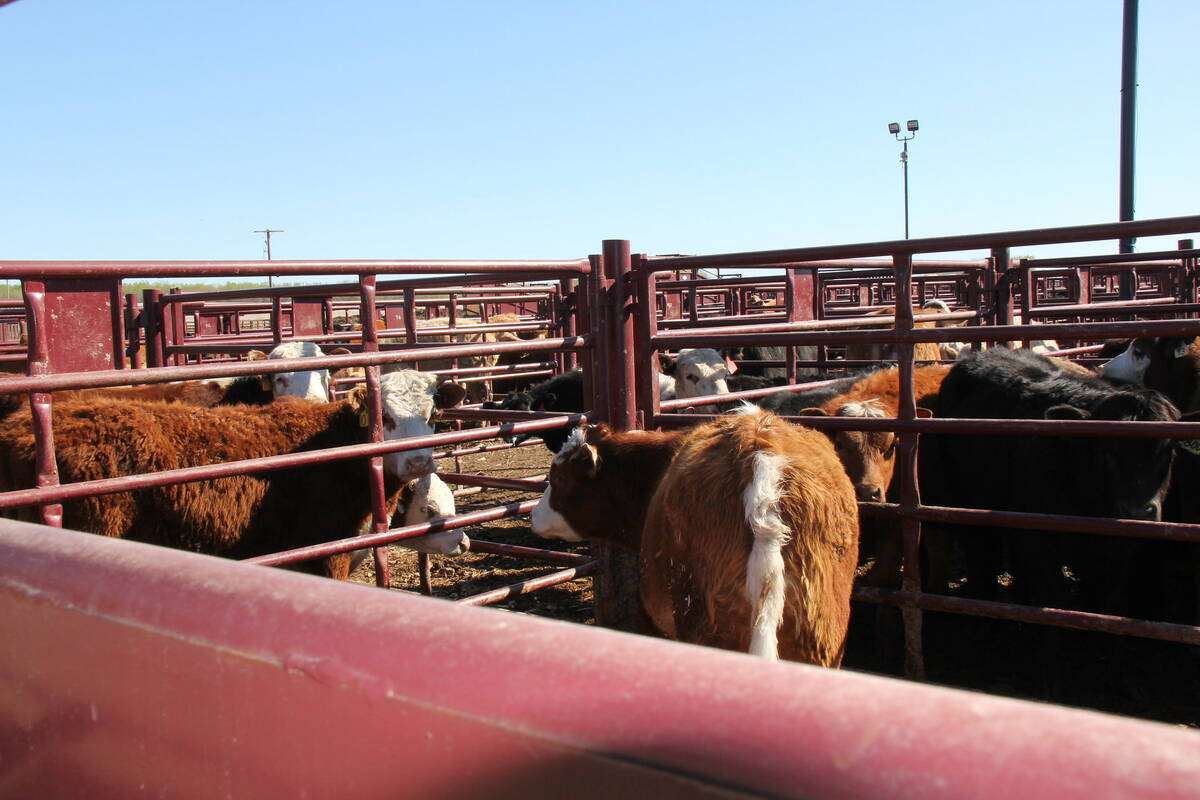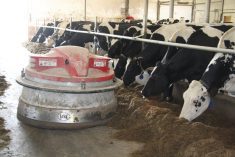INNISFAIL, Alta. – Seven hundred glowering cattle producers streamed into the Innisfail Auction Market last week to discuss a cattle identification program that will be mandatory by the end of the year.
The building reverberated with the same angry comments that have been heard across the Prairies this winter as ranchers grow increasingly uneasy over the program.
“I haven’t registered my guns and I sure as hell won’t register my cattle,” raged one producer to thunderous applause.
She argued national identification is another tax grab and a creative way for the government to control national cattle numbers.
Read Also

Livestock movement scanner looks for proving ground
The Canadian Cattle Identification Agency (CCIA) will test new technology intended to simplify the recording of animal movements, linked to proposed federal livestock traceability regulations.
“Take your time and do it properly,” said others who are leery the program will be costly and ineffective.
The Canadian Cattle Identification Agency is a not-for-profit body set up by various cattle producer groups. It oversees the recording of numbered plastic ear tags issued to producers.
Anyone selling an animal must tag it before it leaves its herd to provide an easy to follow trail in case of disease or other health-related problems.
“We’re trying to do this as industry-friendly as possible,” said agency manager Julie Stitt.
“We’re doing it for animal health and food safety purposes and if you’re tagging, it shouldn’t create a lot of extra grief.”
Only about 10 percent of cattle in Canada are identified, said Carl Block, chair of the identification agency and owner of a cow-calf operation at Abbey, Sask., who is traveling to a series of country meetings explaining the need for such a program.
“If we have an animal health crisis, we need to be able to identify it, identify the source and we need to be able to deal with it.
“We need to demonstrate this to our trading partners, otherwise our borders would be closed. Period,” said Block.
Despite these explanations, the majority of those attending the Innisfail meeting said they are opposed to the concept.
They were told the brand inspection service cannot handle the program because only British Columbia, Alberta and Saskatchewan have registered brand inspection services.
As well, not all animals are branded. Even when they are, the animals become anonymous once the hide is removed. The ear tag is supposed to stay with the animal until it reaches the processing plant’s inspection area.
ID supporters gave some examples at the Innisfail meeting to prove their point.
Last October, they said, a cow from Edam, Sask., was killed at the Moose Jaw, Sask., packing plant. A Canadian Food Inspection Agency representative discovered it had tuberculosis.
One producer argued the system cannot work because feedlot cattle come in contact with animals from all over the country.
As well, some animals change owners many times, which will make tracking difficult as tags are lost and records become sloppy.
Other producers complained about the amount of record keeping involved.
Some worried that the registration will provide Revenue Canada with more information than ranchers wish to surrender.
Stitt said the tax department does not have access to these records and in can trace inventory far easier in other ways.















